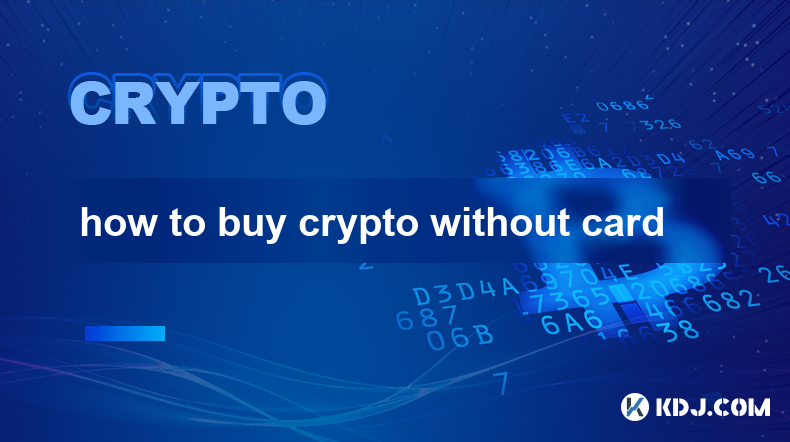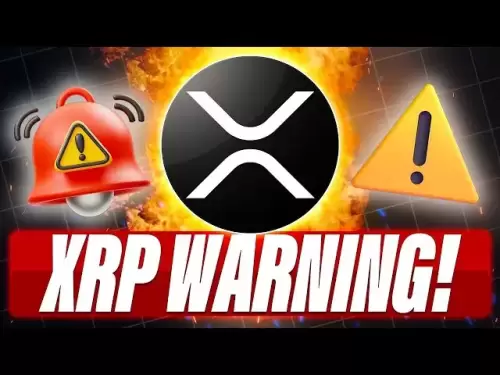-
 Bitcoin
Bitcoin $103,042.3627
-0.78% -
 Ethereum
Ethereum $2,416.4247
-3.48% -
 Tether USDt
Tether USDt $1.0002
0.01% -
 XRP
XRP $2.3208
-2.91% -
 BNB
BNB $641.0580
-0.71% -
 Solana
Solana $161.8902
-5.41% -
 USDC
USDC $0.9998
0.00% -
 Dogecoin
Dogecoin $0.2179
-1.99% -
 Cardano
Cardano $0.7260
-4.12% -
 TRON
TRON $0.2630
-3.56% -
 Sui
Sui $3.6806
-4.16% -
 Chainlink
Chainlink $15.2669
-2.62% -
 Avalanche
Avalanche $21.7139
-5.60% -
 Stellar
Stellar $0.2814
-3.01% -
 Hyperliquid
Hyperliquid $25.4297
-5.03% -
 Shiba Inu
Shiba Inu $0.0...01409
-4.08% -
 UNUS SED LEO
UNUS SED LEO $8.6199
-0.92% -
 Hedera
Hedera $0.1878
-3.27% -
 Bitcoin Cash
Bitcoin Cash $384.3434
-3.64% -
 Toncoin
Toncoin $2.9960
-3.33% -
 Litecoin
Litecoin $95.8268
-2.58% -
 Polkadot
Polkadot $4.5126
-4.92% -
 Monero
Monero $345.6183
1.52% -
 Bitget Token
Bitget Token $5.1630
-1.55% -
 Pepe
Pepe $0.0...01276
-3.79% -
 Dai
Dai $0.9998
0.00% -
 Pi
Pi $0.7204
-2.72% -
 Ethena USDe
Ethena USDe $1.0005
0.00% -
 Uniswap
Uniswap $5.7486
-2.80% -
 Bittensor
Bittensor $393.9451
-6.57%
how to buy crypto without card
To purchase crypto without a credit or debit card, you can utilize non-card payment methods such as bank transfers, wire transfers, or peer-to-peer marketplaces offered by reputable crypto exchanges.
Jan 30, 2025 at 09:42 am

How to Buy Crypto Without a Credit or Debit Card
Key Points:
- Understand the different payment methods available for buying crypto without a card.
- Research reputable exchanges and platforms that offer these methods.
- Follow step-by-step instructions to complete the purchase process.
Payment Methods for Buying Crypto Without a Card:
- Bank Transfer: Transfer funds from your bank account to the exchange's account to purchase crypto.
- Wire Transfer: Send money via wire transfer to the exchange for a larger purchase amount.
- P2P Marketplace: Buy crypto from other individuals directly through a peer-to-peer (P2P) marketplace.
- Cash Deposit: Deposit cash at select ATMs or retail locations that support crypto purchases.
- PayPal: Use PayPal to purchase crypto through certain exchanges, subject to limitations and fees.
- Apple Pay: Apple Pay is accepted as a payment method at some crypto exchanges for purchases made on Apple devices.
- Google Pay: Google Pay can be used to buy crypto on select exchanges for mobile payments.
Step-by-Step Guide to Buying Crypto Without a Card:
Step 1: Research Exchanges
- Identify reputable crypto exchanges that support non-card payment methods.
- Consider factors such as security, fees, and supported payment options.
Step 2: Create an Account
- Register on the chosen exchange by providing personal information and completing KYC procedures.
- Verify your identity to comply with regulatory requirements.
Step 3: Choose a Payment Method
- Explore the available non-card payment options offered by the exchange.
- Select the method that best suits your needs and preferences.
Step 4: Initiate Payment
- Follow the instructions provided by the exchange to initiate the payment.
- Enter the necessary details and transfer funds accordingly.
Step 5: Purchase Crypto
- Select the cryptocurrency you wish to purchase and specify the amount.
- Review the transaction details and confirm the purchase.
Step 6: Store Your Crypto
- Create a secure crypto wallet to store your purchased cryptocurrency.
- Transfer the crypto from the exchange to your wallet for safekeeping.
FAQs:
Q: Which exchanges offer the most non-card payment options?
A: Coinbase, Binance, Kraken, and Gemini are among the top exchanges for a wide range of payment methods.
Q: Is it safe to buy crypto without a card?
A: Yes, buying crypto without a card can be safe as long as you choose reputable exchanges and use secure payment methods.
Q: What are the fees associated with non-card payments?
A: Fees vary depending on the exchange and payment method. Bank transfers typically have lower fees, while wire transfers may incur higher charges.
Q: Can I buy crypto anonymously without a card?
A: Some P2P marketplaces facilitate anonymous crypto purchases, but it's important to note that regulations and KYC requirements may limit anonymity.
Q: What other precautions should I take when buying crypto without a card?
A: Ensure you understand the payment process thoroughly, use strong passwords, and store your crypto securely in a reputable wallet.
Disclaimer:info@kdj.com
The information provided is not trading advice. kdj.com does not assume any responsibility for any investments made based on the information provided in this article. Cryptocurrencies are highly volatile and it is highly recommended that you invest with caution after thorough research!
If you believe that the content used on this website infringes your copyright, please contact us immediately (info@kdj.com) and we will delete it promptly.
- Bitcoin (BTC) Could Reach $250,000 by 2025 and $1M by 2028: BitMEX Co-founder Arthur Hayes
- 2025-05-19 19:35:13
- May 19th is Packed with Major Crypto Events - From a Potential Geopolitical Ceasefire Impacting Bitcoin to Coinbase Joining the S&P 500
- 2025-05-19 19:35:13
- Bitcoin (BTC) Trading Volume Surged in April As Market Sentiment Turned Bullish
- 2025-05-19 19:30:13
- Solana Reports Q1 2025 Revenue of $1.2B, Up 20% QoQ, Driven by Meme Coins, DEXs, and Crypto Wallets
- 2025-05-19 19:30:13
- title: Four On-Chain Metrics That Show Ethereum Strength
- 2025-05-19 19:25:14
- Tether (USDT) Surpasses Germany in US Treasury Holdings, Showing the Benefits of a Diversified Reserve Strategy
- 2025-05-19 19:25:14
Related knowledge

What is Ethereum’s Slashing mechanism and how to punish malicious behavior?
Feb 20,2025 at 03:08am
Key PointsOverview of slashingDifferent types of slashing in EthereumIncentives and consequences of slashingIdentifying and reporting slashed validatorsOngoing discussions and potential improvementsEthereum's Slashing Mechanism: Punishing Malicious BehaviorEthereum's slashing mechanism is an essential tool for ensuring network security and punishing mal...

What is the verifier node of Ethereum and how to become a verifier?
Feb 19,2025 at 06:00pm
The Verifier Node of Ethereum: A Comprehensive GuideKey Points:What is a Verifier Node?How to Become a Verifier NodeResponsibilities and Rewards of a Verifier NodeMinimum Requirements for Becoming a Verifier NodePotential Difficulties in Running a Verifier Node1. What is a Verifier Node?A Verifier Node is an independent entity on the Ethereum network th...

What is Ethereum’s staking, and how to participate and earn money?
Feb 19,2025 at 04:37pm
Key Points:Understanding Ethereum's Staking MechanismSteps to Participate in StakingBenefits and Rewards of StakingSecurity and Risk ConsiderationsTechnical Requirements and Hardware OptionsPotential Challenges and Troubleshooting TipsFAQs on Ethereum StakingWhat is Ethereum's Staking?Proof-of-Stake (PoS) is a consensus mechanism used in blockchain netw...

What is Ethereum’s DAO (Decentralized Autonomous Organization) and how does it work?
Feb 20,2025 at 03:12am
Key PointsDefinition and Structure of a DAOGovernance and Decision-Making in DAOsBenefits and Use Cases of DAOsChallenges and Limitations of DAOsWhat is Ethereum's DAO (Decentralized Autonomous Organization) and How Does It Work?Definition and Structure of a DAOA Decentralized Autonomous Organization (DAO) is an innovative governance and management fram...

What is Ethereum's multi-signature wallet and how to improve security?
Feb 20,2025 at 02:18pm
Key Points:Understanding the Concept of a Multi-Signature WalletBenefits and Drawbacks of Multisig WalletsRequirements for Setting Up a Multisig WalletStep-by-Step Guide to Generating a Multisig WalletImplementing Strategies for Enhanced Security1. Understanding the Concept of a Multi-Signature WalletA multi-signature (multisig) wallet in the Ethereum e...

What is Ethereum's oracle and how to provide data for smart contracts?
Feb 21,2025 at 01:30am
Key Points:Understanding the concept of oracles in EthereumExploring different types of oraclesDetailed guide on how to provide data for smart contractsAddressing potential challenges and considerationsWhat is Ethereum's Oracle?Oracles are crucial components in the Ethereum ecosystem, enabling smart contracts to access real-world data and off-chain even...

What is Ethereum’s Slashing mechanism and how to punish malicious behavior?
Feb 20,2025 at 03:08am
Key PointsOverview of slashingDifferent types of slashing in EthereumIncentives and consequences of slashingIdentifying and reporting slashed validatorsOngoing discussions and potential improvementsEthereum's Slashing Mechanism: Punishing Malicious BehaviorEthereum's slashing mechanism is an essential tool for ensuring network security and punishing mal...

What is the verifier node of Ethereum and how to become a verifier?
Feb 19,2025 at 06:00pm
The Verifier Node of Ethereum: A Comprehensive GuideKey Points:What is a Verifier Node?How to Become a Verifier NodeResponsibilities and Rewards of a Verifier NodeMinimum Requirements for Becoming a Verifier NodePotential Difficulties in Running a Verifier Node1. What is a Verifier Node?A Verifier Node is an independent entity on the Ethereum network th...

What is Ethereum’s staking, and how to participate and earn money?
Feb 19,2025 at 04:37pm
Key Points:Understanding Ethereum's Staking MechanismSteps to Participate in StakingBenefits and Rewards of StakingSecurity and Risk ConsiderationsTechnical Requirements and Hardware OptionsPotential Challenges and Troubleshooting TipsFAQs on Ethereum StakingWhat is Ethereum's Staking?Proof-of-Stake (PoS) is a consensus mechanism used in blockchain netw...

What is Ethereum’s DAO (Decentralized Autonomous Organization) and how does it work?
Feb 20,2025 at 03:12am
Key PointsDefinition and Structure of a DAOGovernance and Decision-Making in DAOsBenefits and Use Cases of DAOsChallenges and Limitations of DAOsWhat is Ethereum's DAO (Decentralized Autonomous Organization) and How Does It Work?Definition and Structure of a DAOA Decentralized Autonomous Organization (DAO) is an innovative governance and management fram...

What is Ethereum's multi-signature wallet and how to improve security?
Feb 20,2025 at 02:18pm
Key Points:Understanding the Concept of a Multi-Signature WalletBenefits and Drawbacks of Multisig WalletsRequirements for Setting Up a Multisig WalletStep-by-Step Guide to Generating a Multisig WalletImplementing Strategies for Enhanced Security1. Understanding the Concept of a Multi-Signature WalletA multi-signature (multisig) wallet in the Ethereum e...

What is Ethereum's oracle and how to provide data for smart contracts?
Feb 21,2025 at 01:30am
Key Points:Understanding the concept of oracles in EthereumExploring different types of oraclesDetailed guide on how to provide data for smart contractsAddressing potential challenges and considerationsWhat is Ethereum's Oracle?Oracles are crucial components in the Ethereum ecosystem, enabling smart contracts to access real-world data and off-chain even...
See all articles
























































































